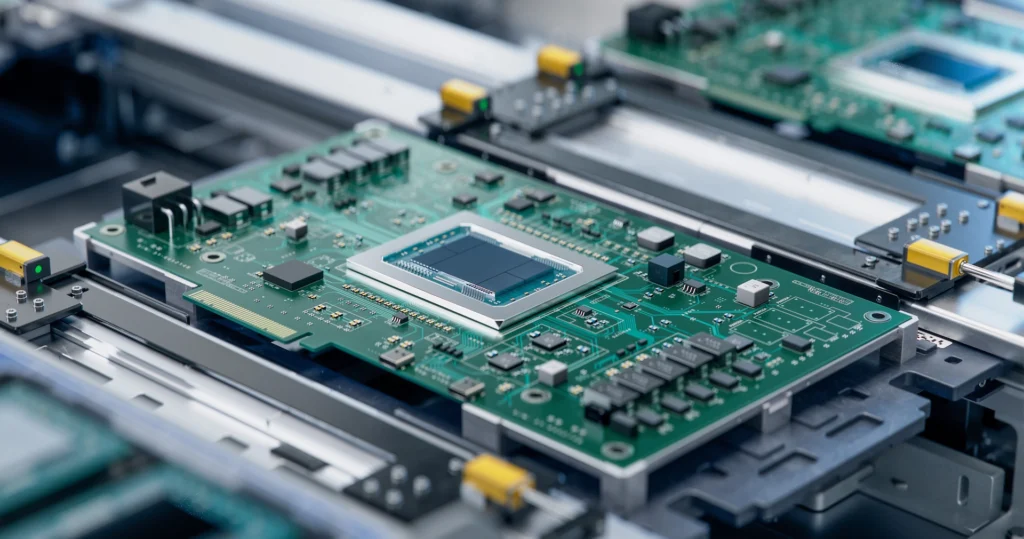
Digital solutions overview
Comprehensive technologies for digital transformation in business environments
Across global markets, digital transformation strategies are reshaping business operations by integrating advanced computer hardware components, application software solutions, and robust cybersecurity measures.

Software and applications for business optimization
Software development tools, including integrated development environments, enable teams to build custom software solutions for logistics management.
Application software solutions, such as project management platforms, streamline workflows by centralizing communication and task tracking.
Software deployment strategies in corporate settings prioritize automated updates and rollback mechanisms to minimize downtime and maintain operational continuity.

Electronic components
Hardware and electronics for efficient digital infrastructures
Modern hardware components from Reflex Ces, such as motherboards and graphics cards, are at the heart of high-performance workstations systems in data centers. Electronics retail stores offer consumer electronics devices like smart displays and wireless audio systems, while electronics repair services provide diagnostics and component-level repairs for laptops and tablets. Electronics recycling solutions address environmental concerns by processing obsolete devices for material recovery.
Video game development and gaming platforms
A role-playing game developed for a handheld console offers touch controls and local multiplayer modes. Online forums dedicated to gaming communities facilitate discussions about strategy and updates. Esports tournaments for first-person shooter titles attract participants from various regions, fostering competitive play and teamwork. Reviews of gaming laptops often compare cooling systems and display refresh rates.

Online multiplayer games
with cross-platform features
A battle royale game available on both consoles and PCs allows players to compete together regardless of device, enhancing accessibility and community engagement.

Game streaming services
for interactive entertainment
A subscription-based platform enables users to play high-end titles on low-spec devices through cloud streaming, reducing hardware requirements and expanding access.

Gaming hardware reviews
with performance analysis
A wireless controller designed for competitive gaming is evaluated for its response time and ergonomic design, providing insights for users seeking specific features.

Technology and innovation for business process automation
Digital transformation strategies in enterprise environments
Cybersecurity and privacy for secure digital operations
Cybersecurity risk assessment processes identify vulnerabilities in enterprise networks, while identity and access management systems control user permissions for sensitive data. Penetration testing services simulate cyberattacks to evaluate the effectiveness of network security solutions in protecting organizational assets.
Business technologies for operational efficiency
CRM implementation centralizes customer information for sales teams, while ERP system integration connects finance, inventory, and human resources modules. Cloud migration services transition legacy applications to scalable cloud infrastructures, supporting remote collaboration and business continuity in distributed teams.

Data analytics solutions for informed decision-making
Data analytics solutions process transactional records and customer interactions, generating visual dashboards that assist managers in identifying trends and optimizing resource allocation in retail chains.


Digital marketing automation
for targeted outreach
Digital marketing automation platforms segment audiences and schedule personalized email campaigns, enhancing customer engagement and conversion rates for online retailers.

E-commerce platforms for digital commerce
E-commerce platform setup includes payment gateway integration and inventory management modules, supporting secure transactions and order tracking for small businesses expanding into online sales channels.
Business process optimization
for competitive advantage
Business process optimization initiatives map existing workflows and implement automation tools, reducing manual tasks and improving response times in customer service operations across multinational corporations.
- Computer hardware components
- Online multiplayer games
- Data analytics solutions
- Application software solutions
Emerging technology trends for strategic growth
AI and machine learning adoption in financial services enables predictive analytics for credit scoring, while IoT implementation in manufacturing plants supports real-time equipment monitoring. Blockchain integration secures transaction records in supply chain management, and virtual reality use cases enhance remote training for technical staff in industrial sectors.

AI and machine learning
for predictive analytics
AI-powered algorithms process historical purchasing data, enabling retailers to forecast demand and manage inventory more efficiently during seasonal peaks.

Virtual and augmented reality
for immersive training
Virtual reality headsets simulate hazardous environments for employee safety training, while augmented reality applications overlay maintenance instructions on machinery.

Blockchain integration for secure transactions
Blockchain integration tracks product origins and delivery status in logistics networks, ensuring transparency and reducing fraud risks in international shipments.